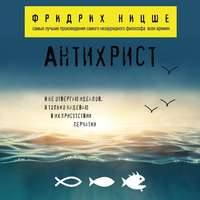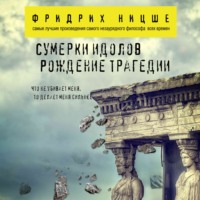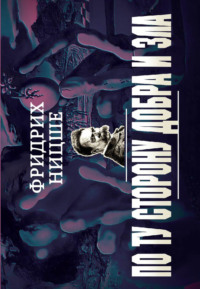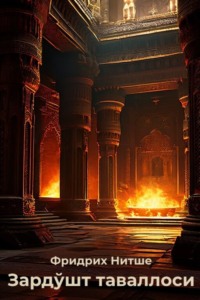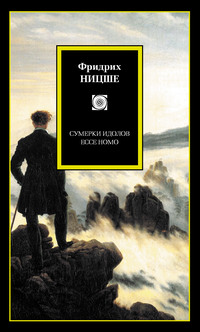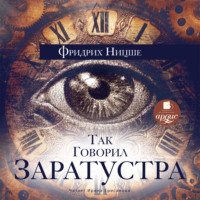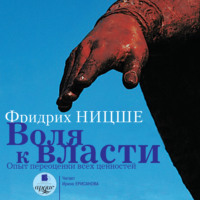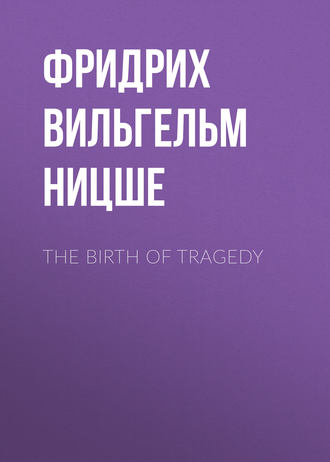 полная версия
полная версияThe Birth of Tragedy
With reference to Archilochus, it has been established by critical research that he introduced the folk-song into literature, and, on account thereof, deserved, according to the general estimate of the Greeks, his unique position alongside of Homer. But what is this popular folk-song in contrast to the wholly Apollonian epos? What else but the perpetuum vestigium of a union of the Apollonian and the Dionysian? Its enormous diffusion among all peoples, still further enhanced by ever new births, testifies to the power of this artistic double impulse of nature: which leaves its vestiges in the popular song in like manner as the orgiastic movements of a people perpetuate themselves in its music. Indeed, one might also furnish historical proofs, that every period which is highly productive in popular songs has been most violently stirred by Dionysian currents, which we must always regard as the substratum and prerequisite of the popular song.
First of all, however, we regard the popular song as the musical mirror of the world, as the Original melody, which now seeks for itself a parallel dream-phenomenon and expresses it in poetry. Melody is therefore primary and universal, and as such may admit of several objectivations, in several texts. Likewise, in the naïve estimation of the people, it is regarded as by far the more important and necessary. Melody generates the poem out of itself by an ever-recurring process. The strophic form of the popular song points to the same phenomenon, which I always beheld with astonishment, till at last I found this explanation. Any one who in accordance with this theory examines a collection of popular songs, such as "Des Knaben Wunderhorn," will find innumerable instances of the perpetually productive melody scattering picture sparks all around: which in their variegation, their abrupt change, their mad precipitance, manifest a power quite unknown to the epic appearance and its steady flow. From the point of view of the epos, this unequal and irregular pictorial world of lyric poetry must be simply condemned: and the solemn epic rhapsodists of the Apollonian festivals in the age of Terpander have certainly done so.
Accordingly, we observe that in the poetising of the popular song, language is strained to its utmost to imitate music; and hence a new world of poetry begins with Archilochus, which is fundamentally opposed to the Homeric. And in saying this we have pointed out the only possible relation between poetry and music, between word and tone: the word, the picture, the concept here seeks an expression analogous to music and now experiences in itself the power of music. In this sense we may discriminate between two main currents in the history of the language of the Greek people, according as their language imitated either the world of phenomena and of pictures, or the world of music. One has only to reflect seriously on the linguistic difference with regard to colour, syntactical structure, and vocabulary in Homer and Pindar, in order to comprehend the significance of this contrast; indeed, it becomes palpably clear to us that in the period between Homer and Pindar the orgiastic flute tones of Olympus must have sounded forth, which, in an age as late as Aristotle's, when music was infinitely more developed, transported people to drunken enthusiasm, and which, when their influence was first felt, undoubtedly incited all the poetic means of expression of contemporaneous man to imitation. I here call attention to a familiar phenomenon of our own times, against which our æsthetics raises many objections. We again and again have occasion to observe how a symphony of Beethoven compels the individual hearers to use figurative speech, though the appearance presented by a collocation of the different pictorial world generated by a piece of music may be never so fantastically diversified and even contradictory. To practise its small wit on such compositions, and to overlook a phenomenon which is certainly worth explaining, is quite in keeping with this æsthetics. Indeed, even if the tone-poet has spoken in pictures concerning a composition, when for instance he designates a certain symphony as the "pastoral" symphony, or a passage therein as "the scene by the brook," or another as the "merry gathering of rustics," these are likewise only symbolical representations born out of music – and not perhaps the imitated objects of music – representations which can give us no information whatever concerning the Dionysian content of music, and which in fact have no distinctive value of their own alongside of other pictorical expressions. This process of a discharge of music in pictures we have now to transfer to some youthful, linguistically productive people, to get a notion as to how the strophic popular song originates, and how the entire faculty of speech is stimulated by this new principle of imitation of music.
If, therefore, we may regard lyric poetry as the effulguration of music in pictures and concepts, we can now ask: "how does music appear in the mirror of symbolism and conception?" It appears as will, taking the word in the Schopenhauerian sense, i. e., as the antithesis of the æsthetic, purely contemplative, and passive frame of mind. Here, however, we must discriminate as sharply as possible between the concept of essentiality and the concept of phenominality; for music, according to its essence, cannot be will, because as such it would have to be wholly banished from the domain of art – for the will is the unæsthetic-in-itself; – yet it appears as will. For in order to express the phenomenon of music in pictures, the lyrist requires all the stirrings of passion, from the whispering of infant desire to the roaring of madness. Under the impulse to speak of music in Apollonian symbols, he conceives of all nature, and himself therein, only as the eternally willing, desiring, longing existence. But in so far as he interprets music by means of pictures, he himself rests in the quiet calm of Apollonian contemplation, however much all around him which he beholds through the medium of music is in a state of confused and violent motion. Indeed, when he beholds himself through this same medium, his own image appears to him in a state of unsatisfied feeling: his own willing, longing, moaning and rejoicing are to him symbols by which he interprets music. Such is the phenomenon of the lyrist: as Apollonian genius he interprets music through the image of the will, while he himself, completely released from the avidity of the will, is the pure, undimmed eye of day.
Our whole disquisition insists on this, that lyric poetry is dependent on the spirit of music just as music itself in its absolute sovereignty does not require the picture and the concept, but only endures them as accompaniments. The poems of the lyrist can express nothing which has not already been contained in the vast universality and absoluteness of the music which compelled him to use figurative speech. By no means is it possible for language adequately to render the cosmic symbolism of music, for the very reason that music stands in symbolic relation to the primordial contradiction and primordial pain in the heart of the Primordial Unity, and therefore symbolises a sphere which is above all appearance and before all phenomena. Rather should we say that all phenomena, compared with it, are but symbols: hence language, as the organ and symbol of phenomena, cannot at all disclose the innermost essence, of music; language can only be in superficial contact with music when it attempts to imitate music; while the profoundest significance of the latter cannot be brought one step nearer to us by all the eloquence of lyric poetry.
7We shall now have to avail ourselves of all the principles of art hitherto considered, in order to find our way through the labyrinth, as we must designate the origin of Greek tragedy. I shall not be charged with absurdity in saying that the problem of this origin has as yet not even been seriously stated, not to say solved, however often the fluttering tatters of ancient tradition have been sewed together in sundry combinations and torn asunder again. This tradition tells us in the most unequivocal terms, that tragedy sprang from the tragic chorus, and was originally only chorus and nothing but chorus: and hence we feel it our duty to look into the heart of this tragic chorus as being the real proto-drama, without in the least contenting ourselves with current art-phraseology – according to which the chorus is the ideal spectator, or represents the people in contrast to the regal side of the scene. The latter explanatory notion, which sounds sublime to many a politician – that the immutable moral law was embodied by the democratic Athenians in the popular chorus, which always carries its point over the passionate excesses and extravagances of kings – may be ever so forcibly suggested by an observation of Aristotle: still it has no bearing on the original formation of tragedy, inasmuch as the entire antithesis of king and people, and, in general, the whole politico-social sphere, is excluded from the purely religious beginnings of tragedy; but, considering the well-known classical form of the chorus in Æschylus and Sophocles, we should even deem it blasphemy to speak here of the anticipation of a "constitutional representation of the people," from which blasphemy others have not shrunk, however. The ancient governments knew of no constitutional representation of the people in praxi, and it is to be hoped that they did not even so much as "anticipate" it in tragedy.
Much more celebrated than this political explanation of the chorus is the notion of A. W. Schlegel, who advises us to regard the chorus, in a manner, as the essence and extract of the crowd of spectators, – as the "ideal spectator." This view when compared with the historical tradition that tragedy was originally only chorus, reveals itself in its true character, as a crude, unscientific, yet brilliant assertion, which, however, has acquired its brilliancy only through its concentrated form of expression, through the truly Germanic bias in favour of whatever is called "ideal," and through our momentary astonishment. For we are indeed astonished the moment we compare our well-known theatrical public with this chorus, and ask ourselves if it could ever be possible to idealise something analogous to the Greek chorus out of such a public. We tacitly deny this, and now wonder as much at the boldness of Schlegel's assertion as at the totally different nature of the Greek public. For hitherto we always believed that the true spectator, be he who he may, had always to remain conscious of having before him a work of art, and not an empiric reality: whereas the tragic chorus of the Greeks is compelled to recognise real beings in the figures of the stage. The chorus of the Oceanides really believes that it sees before it the Titan Prometheus, and considers itself as real as the god of the scene. And are we to own that he is the highest and purest type of spectator, who, like the Oceanides, regards Prometheus as real and present in body? And is it characteristic of the ideal spectator that he should run on the stage and free the god from his torments? We had believed in an æsthetic public, and considered the individual spectator the better qualified the more he was capable of viewing a work of art as art, that is, æsthetically; but now the Schlegelian expression has intimated to us, that the perfect ideal spectator does not at all suffer the world of the scenes to act æsthetically on him, but corporeo-empirically. Oh, these Greeks! we have sighed; they will upset our æsthetics! But once accustomed to it, we have reiterated the saying of Schlegel, as often as the subject of the chorus has been broached.
But the tradition which is so explicit here speaks against Schlegel: the chorus as such, without the stage, – the primitive form of tragedy, – and the chorus of ideal spectators do not harmonise. What kind of art would that be which was extracted from the concept of the spectator, and whereof we are to regard the "spectator as such" as the true form? The spectator without the play is something absurd. We fear that the birth of tragedy can be explained neither by the high esteem for the moral intelligence of the multitude nor by the concept of the spectator without the play; and we regard the problem as too deep to be even so much as touched by such superficial modes of contemplation.
An infinitely more valuable insight into the signification of the chorus had already been displayed by Schiller in the celebrated Preface to his Bride of Messina, where he regarded the chorus as a living wall which tragedy draws round herself to guard her from contact with the world of reality, and to preserve her ideal domain and poetical freedom.
It is with this, his chief weapon, that Schiller combats the ordinary conception of the natural, the illusion ordinarily required in dramatic poetry. He contends that while indeed the day on the stage is merely artificial, the architecture only symbolical, and the metrical dialogue purely ideal in character, nevertheless an erroneous view still prevails in the main: that it is not enough to tolerate merely as a poetical license that which is in reality the essence of all poetry. The introduction of the chorus is, he says, the decisive step by which war is declared openly and honestly against all naturalism in art. – It is, methinks, for disparaging this mode of contemplation that our would-be superior age has coined the disdainful catchword "pseudo-idealism." I fear, however, that we on the other hand with our present worship of the natural and the real have landed at the nadir of all idealism, namely in the region of cabinets of wax-figures. An art indeed exists also here, as in certain novels much in vogue at present: but let no one pester us with the claim that by this art the Schiller-Goethian "Pseudo-idealism" has been vanquished.
It is indeed an "ideal" domain, as Schiller rightly perceived, upon – which the Greek satyric chorus, the chorus of primitive tragedy, was wont to walk, a domain raised far above the actual path of mortals. The Greek framed for this chorus the suspended scaffolding of a fictitious natural state and placed thereon fictitious natural beings. It is on this foundation that tragedy grew up, and so it could of course dispense from the very first with a painful portrayal of reality. Yet it is, not an arbitrary world placed by fancy betwixt heaven and earth; rather is it a world possessing the same reality and trustworthiness that Olympus with its dwellers possessed for the believing Hellene. The satyr, as being the Dionysian chorist, lives in a religiously acknowledged reality under the sanction of the myth and cult. That tragedy begins with him, that the Dionysian wisdom of tragedy speaks through him, is just as surprising a phenomenon to us as, in general, the derivation of tragedy from the chorus. Perhaps we shall get a starting-point for our inquiry, if I put forward the proposition that the satyr, the fictitious natural being, is to the man of culture what Dionysian music is to civilisation. Concerning this latter, Richard Wagner says that it is neutralised by music even as lamplight by daylight. In like manner, I believe, the Greek man of culture felt himself neutralised in the presence of the satyric chorus: and this is the most immediate effect of the Dionysian tragedy, that the state and society, and, in general, the gaps between man and man give way to an overwhelming feeling of oneness, which leads back to the heart of nature. The metaphysical comfort, – with which, as I have here intimated, every true tragedy dismisses us – that, in spite of the perpetual change of phenomena, life at bottom is indestructibly powerful and pleasurable, this comfort appears with corporeal lucidity as the satyric chorus, as the chorus of natural beings, who live ineradicable as it were behind all civilisation, and who, in spite of the ceaseless change of generations and the history of nations, remain for ever the same.
With this chorus the deep-minded Hellene, who is so singularly qualified for the most delicate and severe suffering, consoles himself: – he who has glanced with piercing eye into the very heart of the terrible destructive processes of so-called universal history, as also into the cruelty of nature, and is in danger of longing for a Buddhistic negation of the will. Art saves him, and through art life saves him – for herself.
For we must know that in the rapture of the Dionysian state, with its annihilation of the ordinary bounds and limits of existence, there is a lethargic element, wherein all personal experiences of the past are submerged. It is by this gulf of oblivion that the everyday world and the world of Dionysian reality are separated from each other. But as soon as this everyday reality rises again in consciousness, it is felt as such, and nauseates us; an ascetic will-paralysing mood is the fruit of these states. In this sense the Dionysian man may be said to resemble Hamlet: both have for once seen into the true nature of things, – they have perceived, but they are loath to act; for their action cannot change the eternal nature of things; they regard it as shameful or ridiculous that one should require of them to set aright the time which is out of joint. Knowledge kills action, action requires the veil of illusion – it is this lesson which Hamlet teaches, and not the cheap wisdom of John-a-Dreams who from too much reflection, as it were from a surplus of possibilities, does not arrive at action at all. Not reflection, no! – true knowledge, insight into appalling truth, preponderates over all motives inciting to action, in Hamlet as well as in the Dionysian man. No comfort avails any longer; his longing goes beyond a world after death, beyond the gods themselves; existence with its glittering reflection in the gods, or in an immortal other world is abjured. In the consciousness of the truth he has perceived, man now sees everywhere only the awfulness or the absurdity of existence, he now understands the symbolism in the fate of Ophelia, he now discerns the wisdom of the sylvan god Silenus: and loathing seizes him.
Here, in this extremest danger of the will, art approaches, as a saving and healing enchantress; she alone is able to transform these nauseating reflections on the awfulness or absurdity of existence into representations wherewith it is possible to live: these are the representations of the sublime as the artistic subjugation of the awful, and the comic as the artistic delivery from the nausea of the absurd. The satyric chorus of dithyramb is the saving deed of Greek art; the paroxysms described above spent their force in the intermediary world of these Dionysian followers.
8The satyr, like the idyllic shepherd of our more recent time, is the offspring of a longing after the Primitive and the Natural; but mark with what firmness and fearlessness the Greek embraced the man of the woods, and again, how coyly and mawkishly the modern man dallied with the flattering picture of a tender, flute-playing, soft-natured shepherd! Nature, on which as yet no knowledge has been at work, which maintains unbroken barriers to culture – this is what the Greek saw in his satyr, which still was not on this account supposed to coincide with the ape. On the contrary: it was the archetype of man, the embodiment of his highest and strongest emotions, as the enthusiastic reveller enraptured By the proximity of his god, as the fellow-suffering companion in whom the suffering of the god repeats itself, as the herald of wisdom speaking from the very depths of nature, as the emblem of the sexual omnipotence of nature, which the Greek was wont to contemplate with reverential awe. The satyr was something sublime and godlike: he could not but appear so, especially to the sad and wearied eye of the Dionysian man. He would have been offended by our spurious tricked-up shepherd, while his eye dwelt with sublime satisfaction on the naked and unstuntedly magnificent characters of nature: here the illusion of culture was brushed away from the archetype of man; here the true man, the bearded satyr, revealed himself, who shouts joyfully to his god. Before him the cultured man shrank to a lying caricature. Schiller is right also with reference to these beginnings of tragic art: the chorus is a living bulwark against the onsets of reality, because it – the satyric chorus – portrays existence more truthfully, more realistically, more perfectly than the cultured man who ordinarily considers himself as the only reality. The sphere of poetry does not lie outside the world, like some fantastic impossibility of a poet's imagination: it seeks to be the very opposite, the unvarnished expression of truth, and must for this very reason cast aside the false finery of that supposed reality of the cultured man. The contrast between this intrinsic truth of nature and the falsehood of culture, which poses as the only reality, is similar to that existing between the eternal kernel of things, the thing in itself, and the collective world of phenomena. And even as tragedy, with its metaphysical comfort, points to the eternal life of this kernel of existence, notwithstanding the perpetual dissolution of phenomena, so the symbolism of the satyric chorus already expresses figuratively this primordial relation between the thing in itself and phenomenon. The idyllic shepherd of the modern man is but a copy of the sum of the illusions of culture which he calls nature; the Dionysian Greek desires truth and nature in their most potent form; – he sees himself metamorphosed into the satyr.
The revelling crowd of the votaries of Dionysus rejoices, swayed by such moods and perceptions, the power of which transforms them before their own eyes, so that they imagine they behold themselves as reconstituted genii of nature, as satyrs. The later constitution of the tragic chorus is the artistic imitation of this natural phenomenon, which of course required a separation of the Dionysian spectators from the enchanted Dionysians. However, we must never lose sight of the fact that the public of the Attic tragedy rediscovered itself in the chorus of the orchestra, that there was in reality no antithesis of public and chorus: for all was but one great sublime chorus of dancing and singing satyrs, or of such as allowed themselves to be represented by the satyrs. The Schlegelian observation must here reveal itself to us in a deeper sense. The chorus is the "ideal spectator"7 in so far as it is the only beholder,8 the beholder of the visionary world of the scene. A public of spectators, as known to us, was unknown to the Greeks. In their theatres the terraced structure of the spectators' space rising in concentric arcs enabled every one, in the strictest sense, to overlook the entire world of culture around him, and in surfeited contemplation to imagine himself a chorist. According to this view, then, we may call the chorus in its primitive stage in proto-tragedy, a self-mirroring of the Dionysian man: a phenomenon which may be best exemplified by the process of the actor, who, if he be truly gifted, sees hovering before his eyes with almost tangible perceptibility the character he is to represent. The satyric chorus is first of all a vision of the Dionysian throng, just as the world of the stage is, in turn, a vision of the satyric chorus: the power of this vision is great enough to render the eye dull and insensible to the impression of "reality," to the presence of the cultured men occupying the tiers of seats on every side. The form of the Greek theatre reminds one of a lonesome mountain-valley: the architecture of the scene appears like a luminous cloud-picture which the Bacchants swarming on the mountains behold from the heights, as the splendid encirclement in the midst of which the image of Dionysus is revealed to them.
Owing to our learned conception of the elementary artistic processes, this artistic proto-phenomenon, which is here introduced to explain the tragic chorus, is almost shocking: while nothing can be more certain than that the poet is a poet only in that he beholds himself surrounded by forms which live and act before him, into the innermost being of which his glance penetrates. By reason of a strange defeat in our capacities, we modern men are apt to represent to ourselves the æsthetic proto-phenomenon as too complex and abstract. For the true poet the metaphor is not a rhetorical figure, but a vicarious image which actually hovers before him in place of a concept. The character is not for him an aggregate composed of a studied collection of particular traits, but an irrepressibly live person appearing before his eyes, and differing only from the corresponding vision of the painter by its ever continued life and action. Why is it that Homer sketches much more vividly9 than all the other poets? Because he contemplates10 much more. We talk so abstractly about poetry, because we are all wont to be bad poets. At bottom the æsthetic phenomenon is simple: let a man but have the faculty of perpetually seeing a lively play and of constantly living surrounded by hosts of spirits, then he is a poet: let him but feel the impulse to transform himself and to talk from out the bodies and souls of others, then he is a dramatist.



